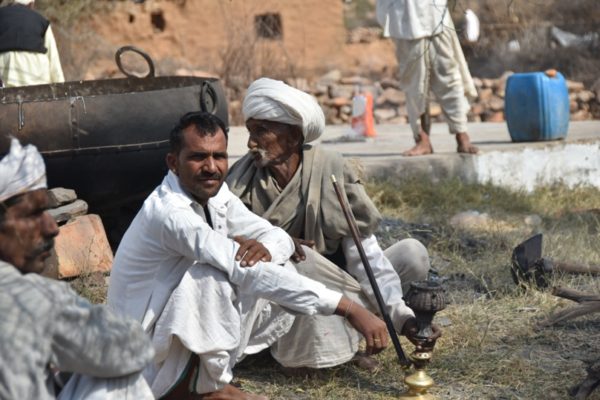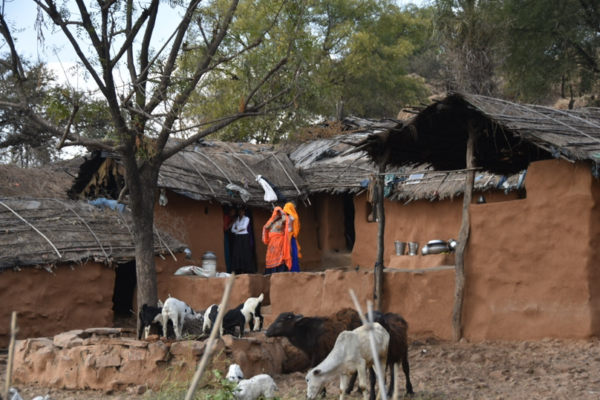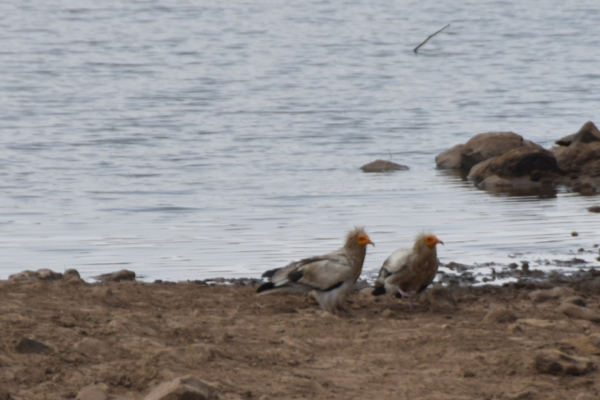
1st February
by Shona MacAffer
We awoke to the sounds of prayer, reminding us this was Saturday a Hindi worship day around Sariska national park and that today we would venture into the park to explore aspects of the human, wildlife interface.
It was a later start to the morning, of which I think we were all grateful, having had some action-packed days previously. We had breakfast and headed to the lecture theatre to meet the enigmatic Dr Ruchi Badola who would guide us into the human, wildlife conflicts around Sariska national park. After a lively introduction we climbed into the gypsies and headed out into the park, going further than we had before. The roads became narrower, steeper and bumpier and we all felt like we were on an adventure roller coaster. After an hour we reached a beautiful plateau with a lake supporting ruddy shelducks, Eurasian spoonbills, black winged stilts and we even spied some Egyptian vultures. We were not surprised that people would want to live in such a beautiful and fertile place.
We passed a village that had been recently vacated and the eerie, empty mud houses brought home the sadness these people may have felt. It was a stark change from the village we later visited, with women laughing in brightly coloured saris, goats playing outside the houses and the men cooking milk and throwing rocks in a strange game of machoism.
At the village, the men and women separated, and our group were taken bare foot into a small mud hut to have a chat with the women, Dr Ruchi acting as our interpreter. We were so surprised by the openness of these women, who would laugh, smile, sing and dance with us and not want us to leave. They told us that they knew they were being asked to leave their homes, but they wanted to stay, they had been here for more than a 100 years. Life was obviously hard for them, cutting wood, feeding their families and travelling to the markets to sell their milk. The young boys we found out, would live in the town outside of the park for schooling during the week; they were aware that they had to be prepared for the changes that were coming for them.
After chai and sweets, we made our farewells and met with the men who had been lounging on beds and smoking outside. We headed back along the bumpy road, contemplative, we saw the trees with their tops cut off, used for wood. Sadly, these trees eventually die and the forest around the villages decline, making these villagers have to search even further for food. Surely life in the town would be better?
After lunch we met in the gardens of the palace for our last lectures of the day. Dr Ruchi first paired us off and we played a game, changing our appearance so the other person would have to observe what we had changed. It really brought home the feeling that these villagers must feel when they are forced to change everything. The excitement, tediousness and desperation, they wanted a better life for their children but to do so must be unimaginably difficult.
At the end of the day we sat around the bonfires chatting before heading to bed, tomorrow would be yet another jam-packed day.



